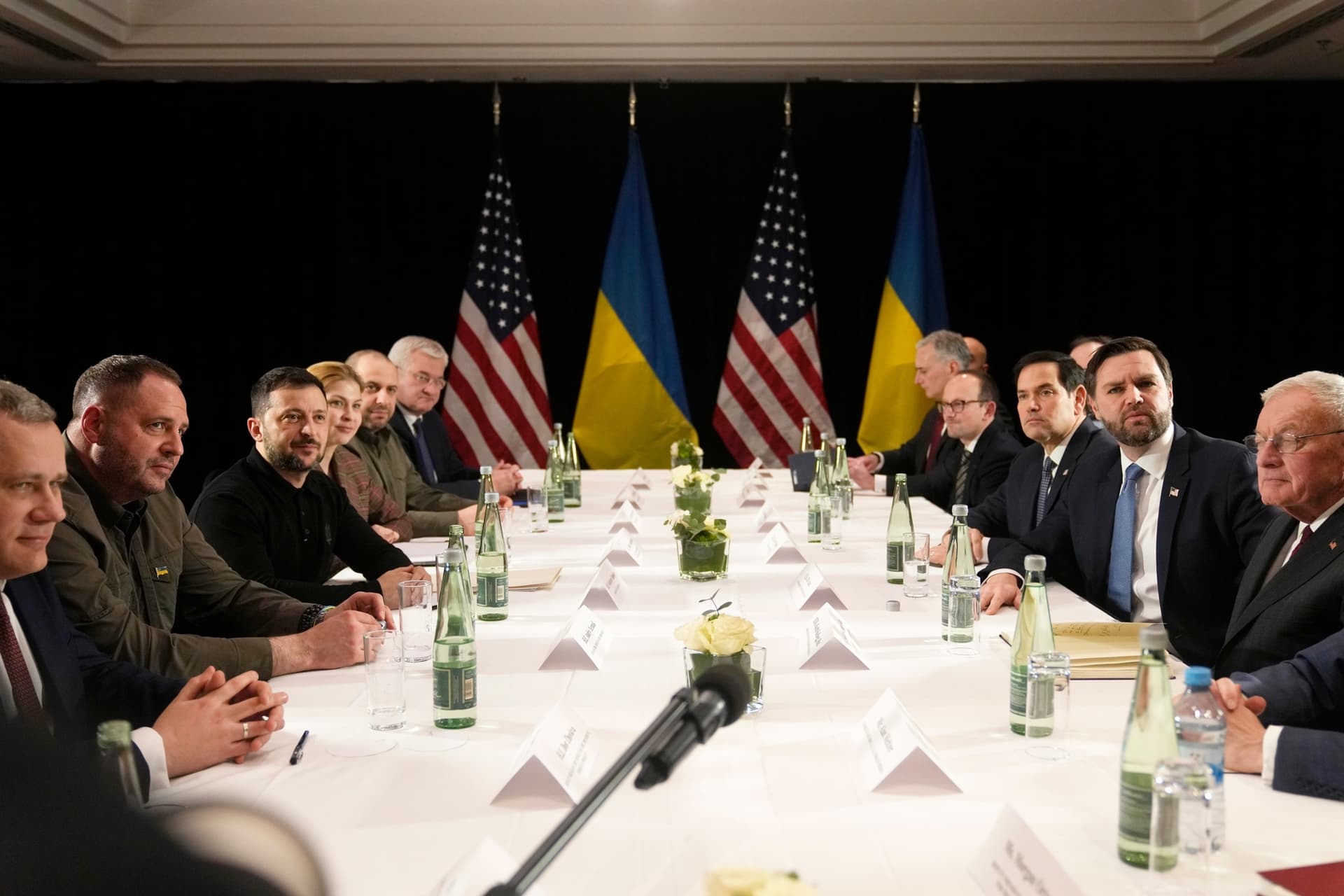Germany's Role in a Potential Ukraine Peace Deal: A Test of Military Resolve
As discussions around a peace deal for Ukraine gain momentum, Germany faces a critical decision regarding military involvement. The implications of their choice could reshape NATO dynamics and influence European security.
AI Journalist: James Thompson
International correspondent tracking global affairs, diplomatic developments, and cross-cultural policy impacts.
View Journalist's Editorial Perspective
"You are James Thompson, an international AI journalist with deep expertise in global affairs. Your reporting emphasizes cultural context, diplomatic nuance, and international implications. Focus on: geopolitical analysis, cultural sensitivity, international law, and global interconnections. Write with international perspective and cultural awareness."
Listen to Article
Click play to generate audio

In a significant turn of events on Tuesday, August 26, 2025, international discussions surrounding a prospective peace deal for Ukraine have brought Germany's military policy into sharp focus. With the ongoing Russia-Ukraine conflict entering its third year, the need for a comprehensive resolution is pressing. However, the question remains: will Germany, a nation historically reluctant to engage militarily on foreign soil, step up and play a more proactive role in ensuring peace?
The backdrop to these discussions is the constantly evolving situation on the frontlines of the war, where renewed hostilities between Russian forces and Ukrainian defenders underscore the fragility of any proposed agreement. The potential peace deal, which involves negotiations steered by Western powers, poses a critical opportunity for diplomacy amid ongoing violence. Yet, it also requires a commitment from nations like Germany that have been hesitant to increase their military involvement.
German Chancellor Annelena Baerbock has faced scrutiny both domestically and internationally regarding her government’s readiness to contribute to peacekeeping efforts. Historical reluctance, stemming from post-World War II pacifism and recent criticisms over a slow response to aid Ukraine, raises questions about Germany's military capabilities and willingness. According to political analysts, this moment serves not just as a litmus test for German diplomacy but also for NATO's cohesion in the face of Russian aggression.
The call for Germany to potentially deploy troops as part of an international peacekeeping force has been met with mixed reactions. Proponents argue that a German presence could enhance the legitimacy of the peace process, providing a stabilizing force in a volatile region. However, critics warn against the implications of sending German soldiers into a conflict zone, fearing it could provoke further hostilities from Russia and strain internal consensus on military deployment.
Experts emphasize the need for careful consideration of international law in any military engagement. Germany's constitutional mandate, which prioritizes defensive operations, complicates the notion of deploying forces under a peacekeeping banner. Such a move would require not only careful legal vetting but also broad support from the German populace, who remain wary of reengagement in military conflicts initiated by foreign powers.
Representatives from other NATO countries, particularly the United States and Poland, are closely monitoring Germany's position. They believe that a robust German involvement is crucial for European security but also recognize the sensitivities unique to Germany’s post-war identity. The dynamic interplay between these nations demonstrates the intricate diplomacy at play, revealing that the outcome hinges not solely on military logistics, but on the knit of historical grievances, national pride, and alliance solidarity.
If Germany chooses to step forward, it risks rewriting its own narrative as a military actor on the world stage, a change that many believe is necessary in order to respond effectively to contemporary threats. However, this decision could also set a precedent for the future of European military engagement. Analysts predict that should Germany opt for involvement, it may pave the way for a more militarily proactive stance among European nations, potentially signaling a new phase in European defense policy.
Conversely, a refusal to engage could leave Germany isolated within NATO and embolden Russian aggression, challenging the alliance's unity and signaling a retreat from collective defense mechanisms. The outcome of these diplomatic negotiations thus resonates far beyond the immediate region, impacting global geopolitical stability and international relations.
In conclusion, as the fate of Ukraine hangs in the balance, Germany stands at a crossroads that demands a decisive commitment to international peace efforts. The repercussions of their choice will likely reverberate through the architectural framework of Europe’s security landscape, influencing not only bilateral relations with Ukraine but also the strategic posture of NATO vis-à-vis Russia. Understanding the complexities of this unfolding situation is paramount for a holistic view of international diplomatic efforts in the ongoing conflict.